The Best Music Theory Resources for Musicians and Producers, Paid and Free!
Music theory is great! Even just learning the basics, the stuff you can pick up in a week makes it so much easier to compose and play music. It’s like getting the keys to the castle! Alas, not that many are keen. In my experience, the prospect of learning music theory sounded daunting to everyone not from a musical background. And it certainly sounded daunting to me when I was younger. I don’t think the culprit is music theory itself, but rather the way it’s taught and presented.
If you know zilch about music theory and stumble upon a random lesson online on modes or whatever, it’ll hurt ya brain! And long before that, we all had those godawful music classes in school where the teacher was mental, the songs sucked, and nothing made sense. Further in life, there’s nothing left to turn you onto music theory other than things like a deep appreciation for music, strong personal examples from musicians you admire, or the frustration of wanting to create something but not knowing how.
Fortunately, it’s never too late to educate and enrich yourself provided you can spare the time and effort. If you want to finally learn music theory or quickly brush up on the basics, I offer 6 tried and tested sources (by me). Hopefully, you’ll click with the content they offer just like I did and end up getting up to speed in no time!
1. Idiot’s Guides: Music Theory (3rd Edition)
This fantastic book did what approximately 30 others before it couldn’t – it taught 23-year old me music theory in a little over a week! When I started, my mind was a mess of loosely connected, poorly understood musical concepts I randomly picked up from the internet. But I remember clicking with Michael Miller’s writing from the get-go, which makes sense – he literally wrote this book for idiots, it’s on the cover!
Having finally found my feet, I ended up learning enough music theory to carry me through the entirety of my failed musical career! I got a lot more out of this book than one’d expect given it’s designed for complete novices. Yet I never felt overwhelmed by any of the material. My reasoning for the book’s effectiveness lies in its competently chosen content that’s explained in a friendly, down-to-earth, but also focused manner. The writing is nowhere near dry, but it’s also stripped of corny jokes. There are no sudden skill jumps, either. That’s exactly how I imagine a great teacher would be approaching the subject.
2. Ableton – Get started making music
I believe no major DAW maker has promoted an educated and mindful approach to music creation quite like Ableton. The ‘Making Music’ book is as practical as it is beautifully written but there’s also this wonderful Ableton project to consider. It’s a series of interactive music theory lessons carried within an audio-visual environment that’s very similar to working in Live. It all happens inside your browser, though. Learning Music is a fantastic approach to introducing music theory essentials within a context that’s immediately familiar to most modern producers.
3. Coursera – Fundamentals of Music Theory
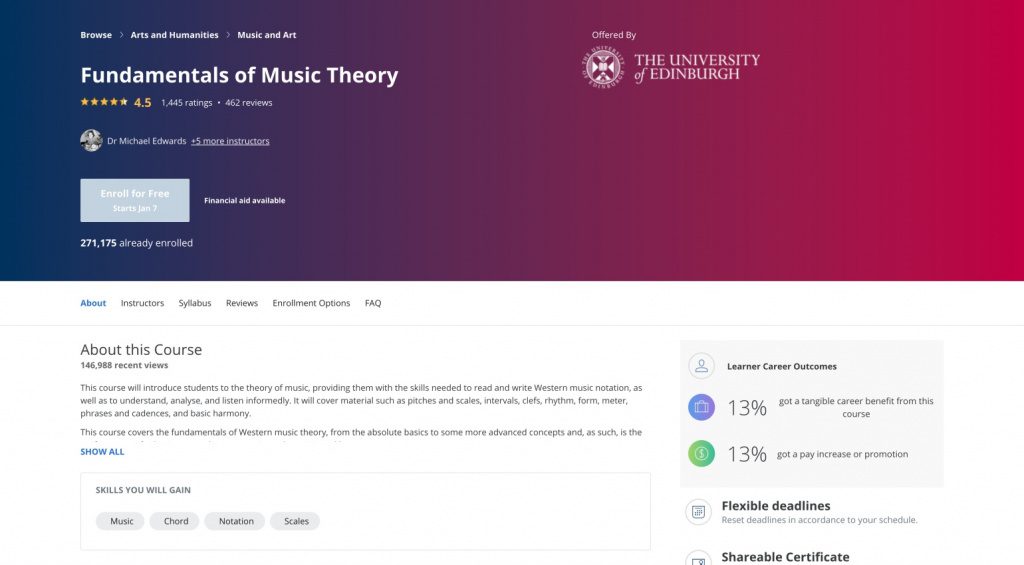
The University of Edinburgh admirably opens up academic schooling to anyone on the internet. · Source: Gearnews
If you want a proper academic music schooling without getting rejected from your local conservatory or experiencing the dubious thrills of college life, the best place is the University of Edinburgh’s free course on Coursera. The privilege of university education delivered for free is among the few things left that make today’s internet more pleasant than it is toxic. That aside, the UOE course covers the fundamentals of Western music theory as well as it possibly gets. It has been up on Coursera for ages, it’s still regularly maintained, and it’s just a fantastic all-around display on behalf of the Edinburgh university. With nearly 271,000 ‘students’ having enrolled so far, even if less than half of them made it ’till the end, that’s still tens of thousands of newly musically educated people, all from the comfort of their homes. It’s a thing of beauty and I’m compelled to ask – isn’t it high time we rethink the whole academic education thing? Like, do we need another pandemic or something?
4. Signals Music Studio
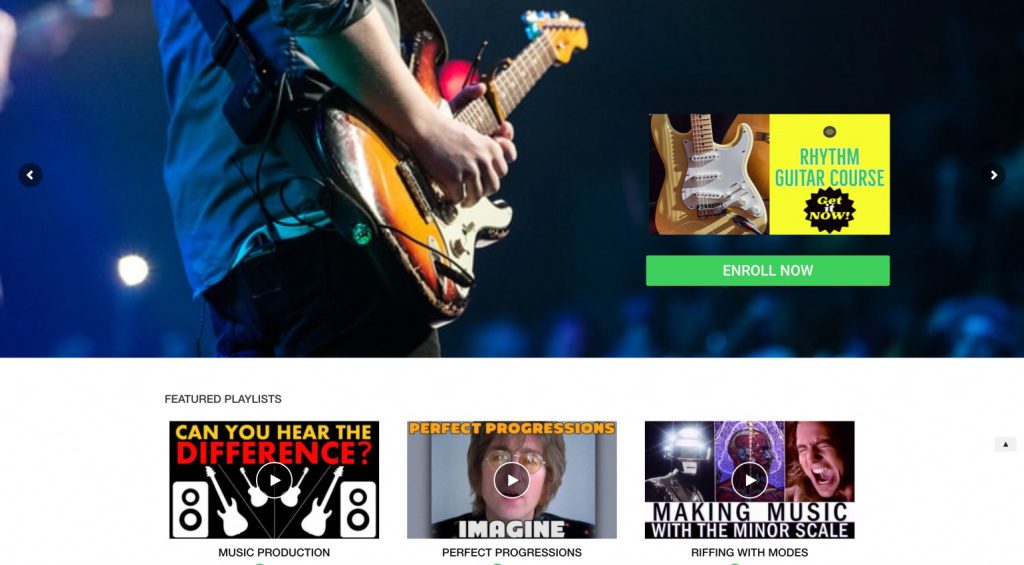
Jake at Signals Music Studio is a glowing example of geeking out, having fun, and contributing to open education. · Source: Gearnews
Signals Music Studio (Jake Lizzio) teaches music theory in the context of songwriting and playing guitar. Recording and music production are covered as well. There’s also the Music Deep Dives series offering unique insights into a broad choice of tunes. I mean, look at that stuff – did you ever consider the similarities between System of a Down and Bon Jovi (whaaa?!) All in all, the content is super valuable and what’s even better is that a large amount of it is up on YouTube for free! Jake makes a big point of opening up musical education to those unable to afford paid lessons, which is the kind of deed I wholeheartedly support. He never misses an opportunity to crack a joke while at it, too! What a champ.
5. Music Theory for Producers (Beginners and Advanced) – Producertech
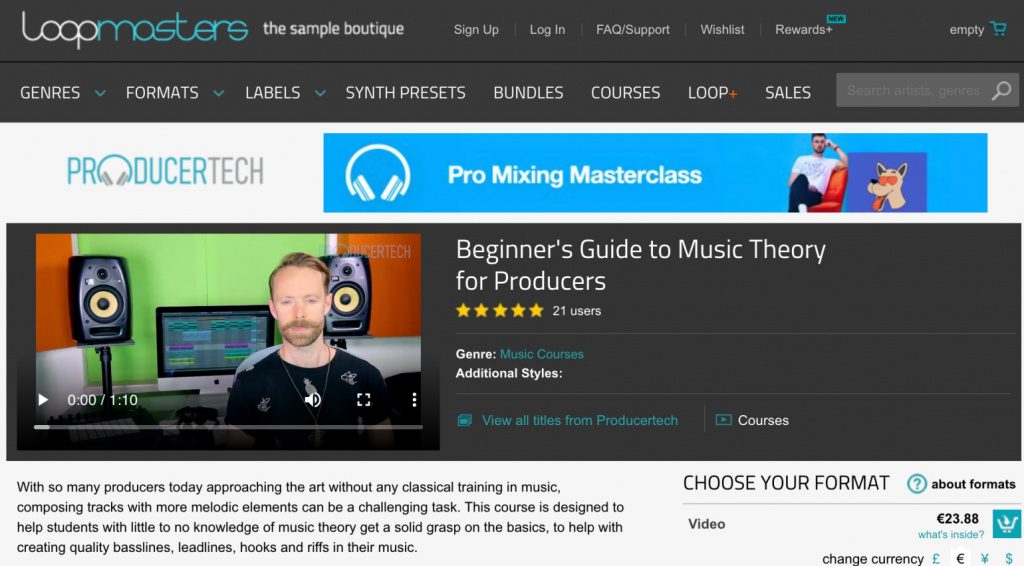
Rob Jones at Producertech is a consummate teacher of music theory and production. · Source: Gearnews
Producertech instructor Ron Jones dishes out top-notch education geared specifically towards electronic music producers. He’s a got a pair of music theory courses for Beginner and Advanced producers where all the concepts are immediately applied within a DAW/production context. That’s music education catching up with the times. All of Rob’s videos I’ve seen have been remarkably streamlined and focused. His NI Maschine course taught me the ropes like nobody’s business back in the day.
As far as my understanding goes, Rob’s on top of his game, so any of his content comes highly recommended from me. Producertech is a paid platform (part of Loopmasters) but the prices are more than reasonable.
6. MaqamWorld (Arabic music theory)
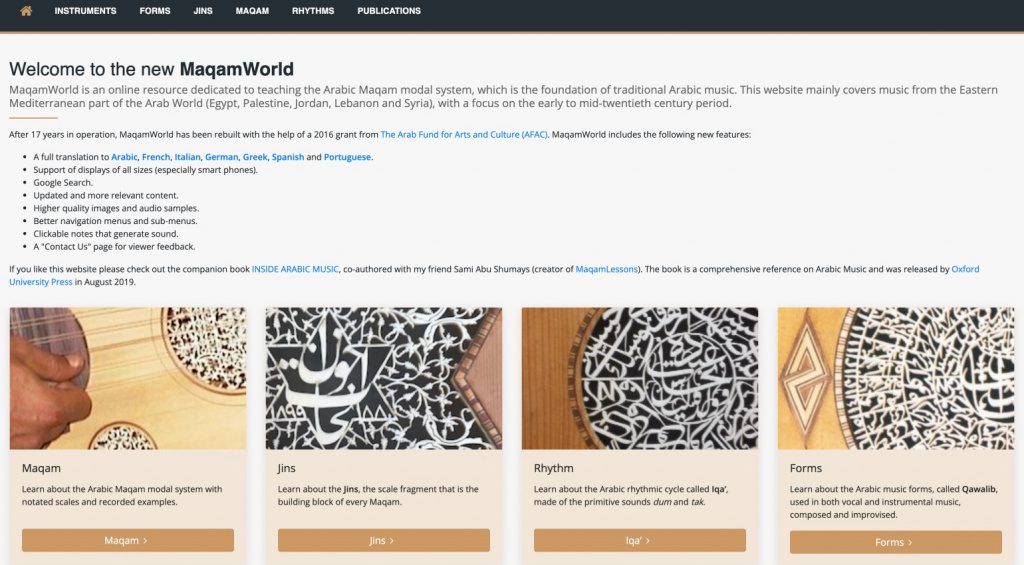
MaqamWorld is a viable educational source as much as it is a preservation of Arabic cultural heritage. · Source: Gearnews
Beyond the basics, music theory is a vast subject and Western musical theory is just the tip of iceberg. The Arabic Maqam modal system is a large body of musical knowledge to explore. The Maqam is nothing like the Western musical system you may be familiar with, which makes it all the more intriguing. It has enough of the obscure and the exotic to keep you entertained for a glance at the basics. It also has enough of the academic to really challenge your studies if you decide to venture deep. Regardless of your intent, MaqamWorld is the best introduction to the subject that you can experience online. It’s like a beautiful Arab music textbook coming alive in your browser. One that’s obviously made with deep love and appreciation for world music and culture.
11 responses to “The Best Music Theory Resources for Musicians and Producers, Paid and Free!”
 1,0 / 5,0 |
1,0 / 5,0 | 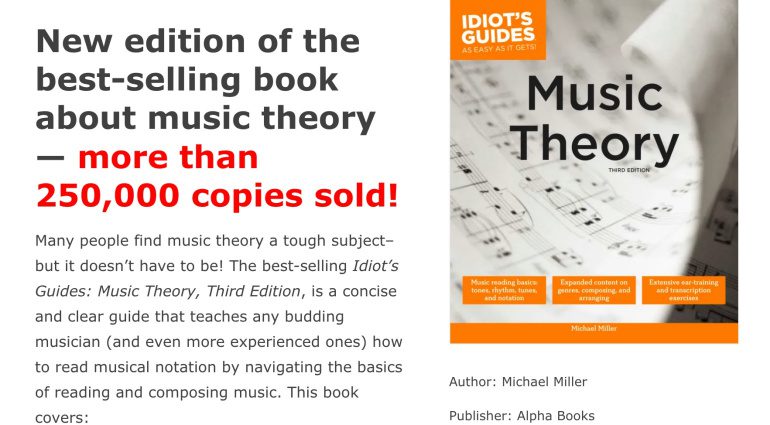
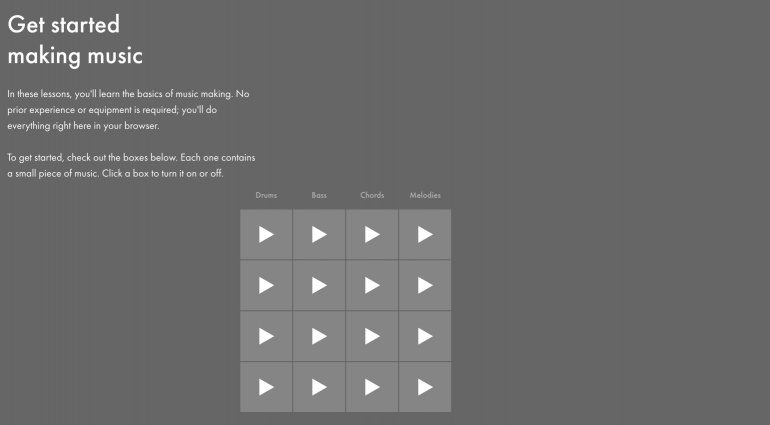
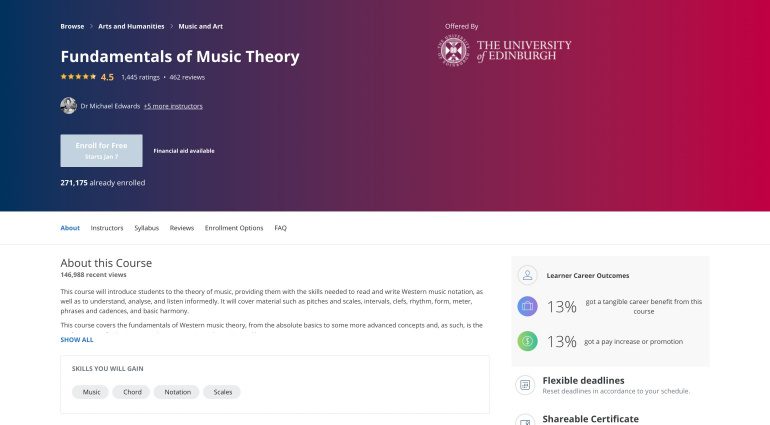
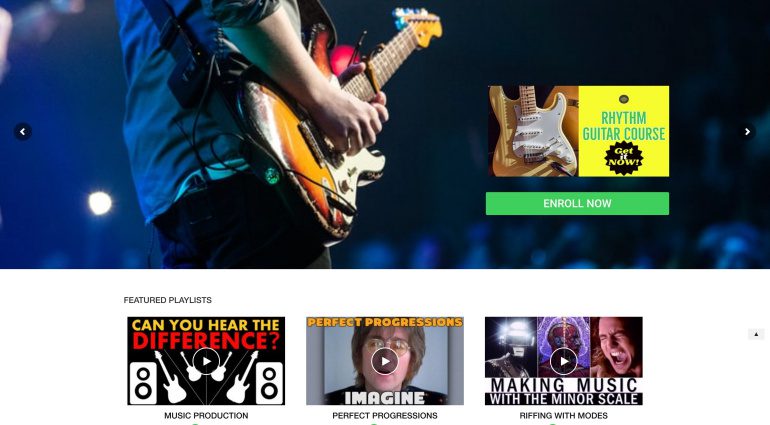
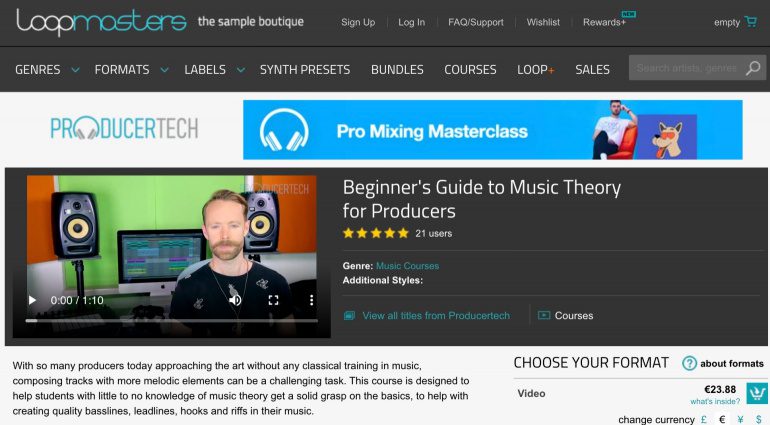
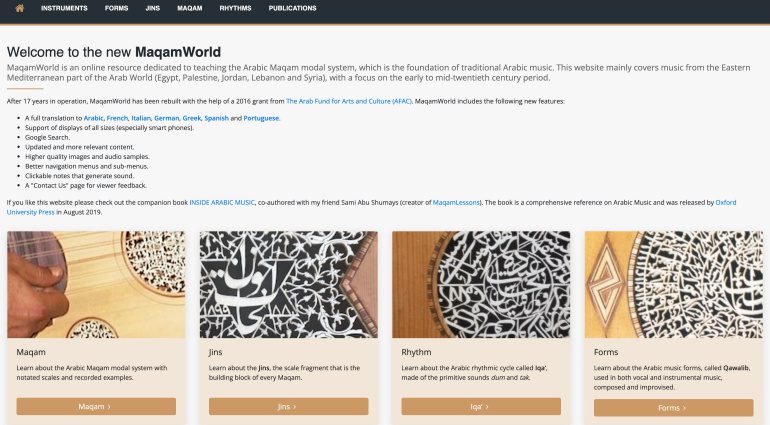






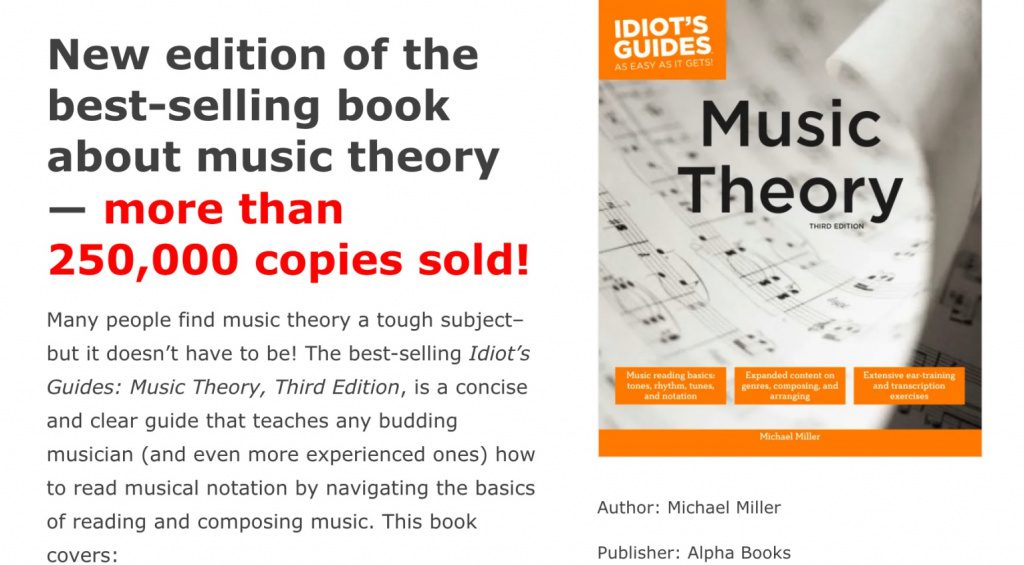
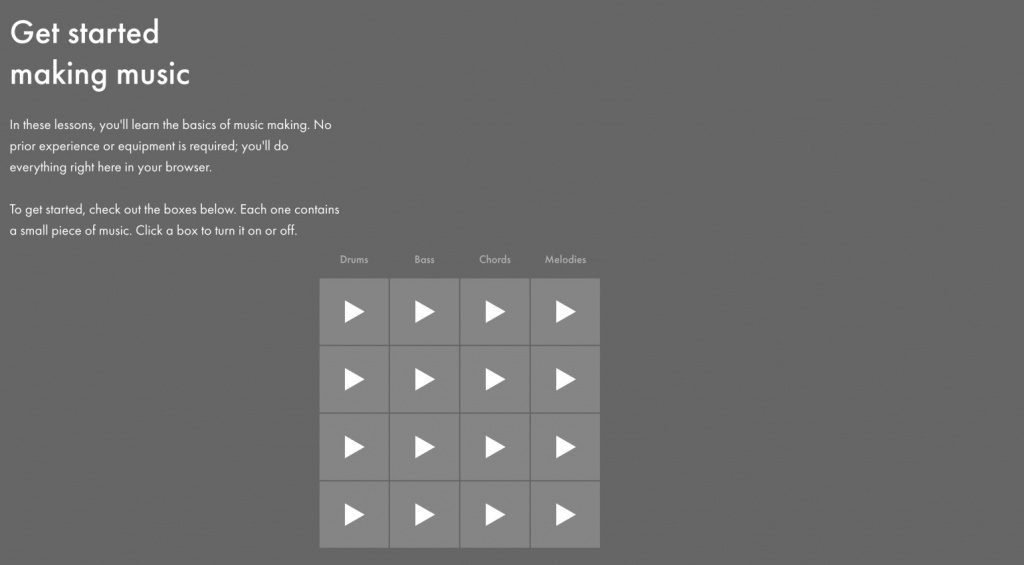






Fantastic..l never knew about great resources….these are such a pleasant surprise. Especially like the theory offerings including non.western music
Great list, thanks! I’m also teaching myself and I’ve also found a lot of great stuff on YouTube which is all free. 12tone has basic and advanced theory and song analysis, Adam Neely is great, and 8-bit Music Theory is a lot of fun, and they all riff off each other from time to time which for me is like sitting at the cool kids table at lunch listening in.) There’s plenty more YouTubers I subscribe to which have also helped me here and there, whether it’s tricks for learning modes on the fretboard or figuring out how many uses the Circle of 4ths/5ths has that weren’t obvious to me at first. Now thanks to your list I’m about to go down more rabbit holes!
Adam Neely will tell you that music theory is racist. Support that guy if you want ideas to be divided up by race, which is racist.
He made a video with that name, “Music Theory is Racist,” FYI
Adam Neely is absolutely brilliant at using 20,000 words where 200 will do perfectly well. No-one on YouTube works harder to make things sound significantly more complicated than they really are, as he “explains” things to us mere mortals. If you are a neophyte it all sounds very clever. But if you know what he’s talking about you can see exactly what he’s doing.
As for the race thing specifically, he gets seriously triggered whenever someone points to the extensive research from multiple independent sources which demonstrates clearly that the blues is as much descended from British folk music (which was prevalent throughout the Antebellum South in the 1700s and 1800s) and European chamber music as it is from songs and music brought to America by the victims of the Atlantic slave trade. Indeed, some early blues even had lyrics lifted directly from British folk songs, not just the melodies/harmonies from British and wider European music. It’s a mixture. But he will not accept it, and gets angry when people mention it. He has even suggested that early European “classical” music, and therefore all that followed (including Mozart and Bach) was stolen from Africa. All the research is wrong, and he is right, as always.
Steer well clear. Plenty of alternative resources out there from those who are better educated and much better at educating – and simplifying where appropriate. And with no political agenda, historical revisionism, or personal arrogance too.
Your first 2 sentences sum up exactly what I think the main issue with youtube is as a whole.
He won’t just tell you though, he’ll provide supporting evidence including references to follow up on, and critical thinking can help one work out what people have to gain from what they’re saying. I went down this rabbit hole at the time and found the whole topic eye opening. I guess if you’re easily upset by new information this might not be your cup of tea, but for the rest of us it’s how we learn and grow.
On the blues and classical points I raised he offered no original research to support his claims yet summarily dismissed multiple independent research that he didn’t like. And the only one who gets upset is him, when he loses his rag at people who post comments he doesn’t like. So run along with your straw man Matt, there’s a good chap.
Thank you James.
I gave up on The Idiots Guide (not sure what version) after they printed a mistake with the major scale. Figured if something so fundamental was wrong, what else was wrong.
I’m shocked you didn’t include Rick Beato’s book in the list…
You are currently viewing a placeholder content from Facebook. To access the actual content, click the button below. Please note that doing so will share data with third-party providers.
More InformationYou are currently viewing a placeholder content from Instagram. To access the actual content, click the button below. Please note that doing so will share data with third-party providers.
More InformationYou are currently viewing a placeholder content from X. To access the actual content, click the button below. Please note that doing so will share data with third-party providers.
More Information